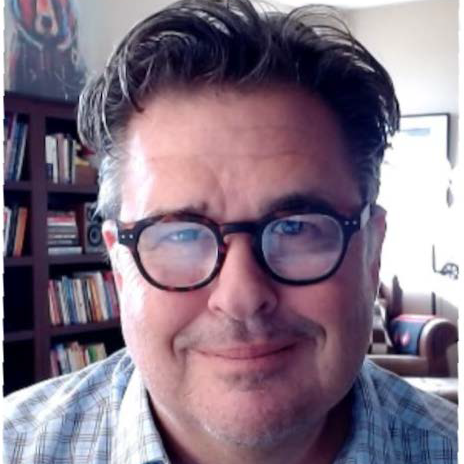|
Recent NEPA Cases (2021)
Moderated By: Fred Wagner
9:45 – 11:00 AM ET
| About the Presentation |
|
The panel is based on a paper that reviews substantive National Environmental Policy Act (NEPA) cases issued by the United States Courts of Appeals in 2021. The implications of the decisions and relevance to NEPA practitioners will be explained. This session will summarize the more detailed paper prepared for this session. The paper briefly explains, with an emphasis on the substantive NEPA findings, each opinion issued by the U.S. Court of Appeals. The paper identifies statistics regarding the NEPA appellate opinions, such as twelve-year record of NEPA cases, organized by circuit, and by year. The paper also identifies the agencies involved in each case and presents statistics relevant to the agencies; the paper further identifies the prevailing ratio of federal agencies, including by agency and by document type (categorical exclusion, environmental assessment, environmental impact statement). The paper analyzes the trends in the court opinions involving NEPA for 2021, with an emphasis on substantive NEPA practice, and by grouping of the cases.
Finally, each court opinion is paraphrased and organized in a manner easy to read for practitioners to find the court’s ruling. Appellate opinions are grouped and analyzed by agency. Past trends include challenges to purpose and need, alternatives considered, public comment, scientific impact assessment methodologies, GHG emissions and climate change impact assessment, incomplete or unavailable information, determination of significance, segmentation, duty to supplement, connected actions, federal actions, cumulative impact assessment, mitigation, monitoring, and adaptive management.
Suggestions for improving the implementation of the NEPA process and to meeting current challenges are offered, looking ahead to the future with renewed emphasis on one of the world’s oldest and most forward-looking environmental laws.
|
| About the Panel Chair |
|
 Fred Wagner, NAEP Elected At-Large Board Member Fred Wagner, NAEP Elected At-Large Board Member
Partner
Venable, LLP
Fred has over 30 years of government and private practice experience in infrastructure development and environmental law. He focuses his practice on major projects and infrastructure developments, including environmental reviews, permitting and approvals from federal and state natural resources agencies, and litigation defense of project decisions and policies. From 2011 to 2014, Mr. Wagner served as Chief Counsel of the Federal Highway Administration (FHWA), where he worked with Department of Transportation leadership on high-priority legislative and regulatory issues, and partnered with the Department of Justice on litigation challenging transportation projects. During his tenure with FHWA, Mr. Wagner worked on numerous high-profile national projects across the country, including the Ohio River Bridges in Kentucky and Indiana, the Bonner Bridge in North Carolina, the Tappan Zee Bridge in New York, the Birmingham Northern Beltline in Alabama, the Zoo Interchange in Wisconsin, the State Road 520 Bridge and HOV project in Washington State, the Presidio Parkway in San Francisco, and the Elgin-O'Hare Expressway in Chicago. Mr. Wagner began his career as a trial attorney in the Environment Division of the U.S. DOJ and served as a Special Assistant U.S. Attorney in the Misdemeanor Trial Section of the U.S. Attorney's Office for DC.
|
| About the Speaker(s) |
|
 P.E. ("Pam") Hudson P.E. ("Pam") Hudson
NAVFAC SW
Department of the Navy Office of General Counsel
An NAEP member since 2013, P.E. "Pam" Hudson serves as the Senior Associate Counsel for Naval Facilities Engineering Systems Command Southwest. Prior to joining NAVFAC, Ms. Hidson served as Counsel for Cibil Engineer Corps Officers School, where a majority of her portfolio notably included environmental impact assessment legal sufficiency reviews and the Nacy's environmental law training program. Since 2013, Ms. Hudson has authored fifteen federal agency, academic and peer-reviewed articled, which have been cited in the Federal Register, on agency websites and journals, academic journals, and in news articles. She has twenty years of environmental impact assessment experience; from 2013-2015, she served on NAEP's committee for the CEQ's Pilot Project on Best Practice Principles for Environmental Assessments. Prior to joining the Office of General Counsel, she practiced at Kilpatrick Stockton, LLP, in Atlanta, Georgia, and Roetzel & Andress in Naples, Florida. She interned as a federal clerk for the Northern District of Florida for the Honorable Robert Hinkle. Ms. Hudson is an alumna of Florida State University School of Law, where she was the Beverly Stout McLear Environmental and Land Use Scholar. Ms. Hudson retired from the Navy as Commander (Oceanography). *Ms. Hudson's views are hers alone, and do not reflect the views of the Department of Defense or the Navy.
 Michael D. Smith, PhD Michael D. Smith, PhD
National Practice Leader, Environmental Process and Policy
WSP
Michael is a nationally-recognized leader in environmental policy and National Environmental Policy Act (NEPA) compliance, with more than 29 years of experience in environmental impact assessment, project and program management, policy development, land use planning, business development, group leader, and training/education with the federal government, private sector, academia, and non-governmental organizations. His technical areas of expertise include assisting clients with successfully navigating complex permitting situations; cumulative impact analysis; greenhouse gas emissions and climate change analysis; socioeconomics and environmental justice analysis; and designing strategies for streamlining NEPA and CEQA and related permitting processes and reviews.
Michael has managed and provided environmental compliance review for some of the nation's largest, most complex, and highly controversial projects, including major energy (fossil and renewable), transportation, and water resources infrastructure projects, approval of genetically engineered plants, commercial space transportation operations, legalized cannabis regulatory programs, and approval of new fuel economy standards for all vehicles operated in the United States. He frequently provides training and strategic advice for NEPA, CEQA, and related environmental compliance requirements for public and private sector clients and as a faculty member at the University of California Los Angeles Extension Environmental Studies and Sustainability Programs, the University of California Davis Extension Land Use and Natural Resources Program, and served on a White House Council on Environmental Quality Task Force on NEPA training.
|
Back to Schedule
|